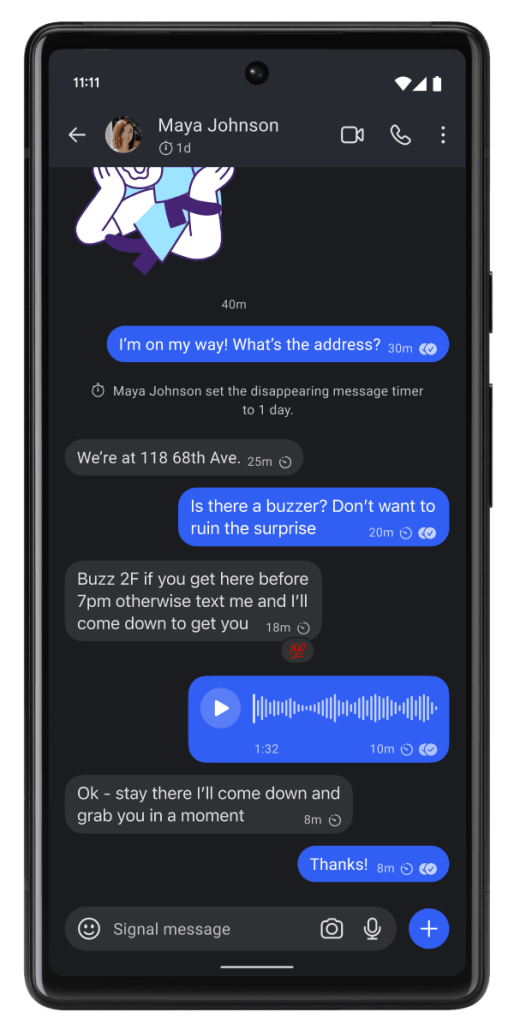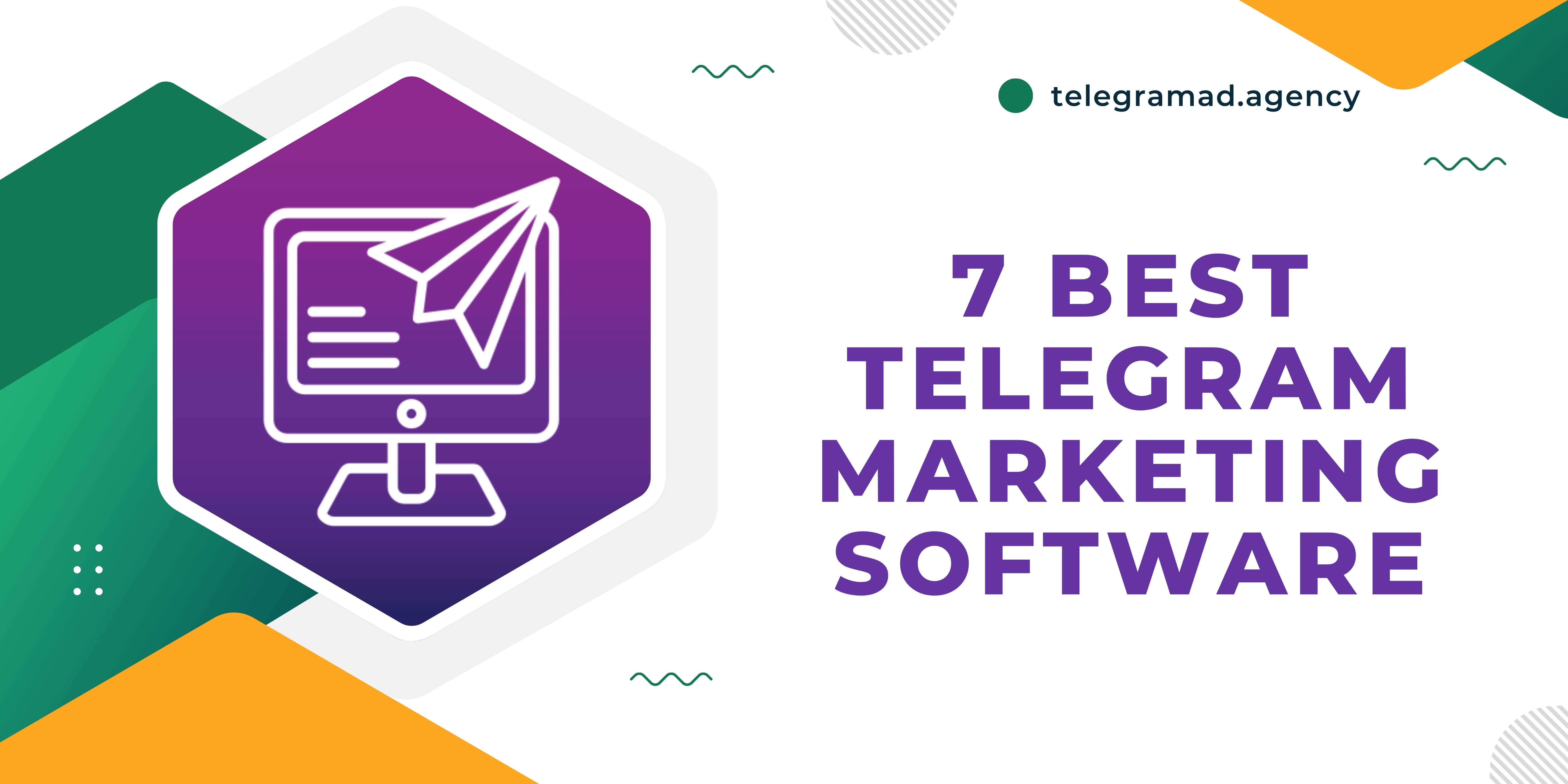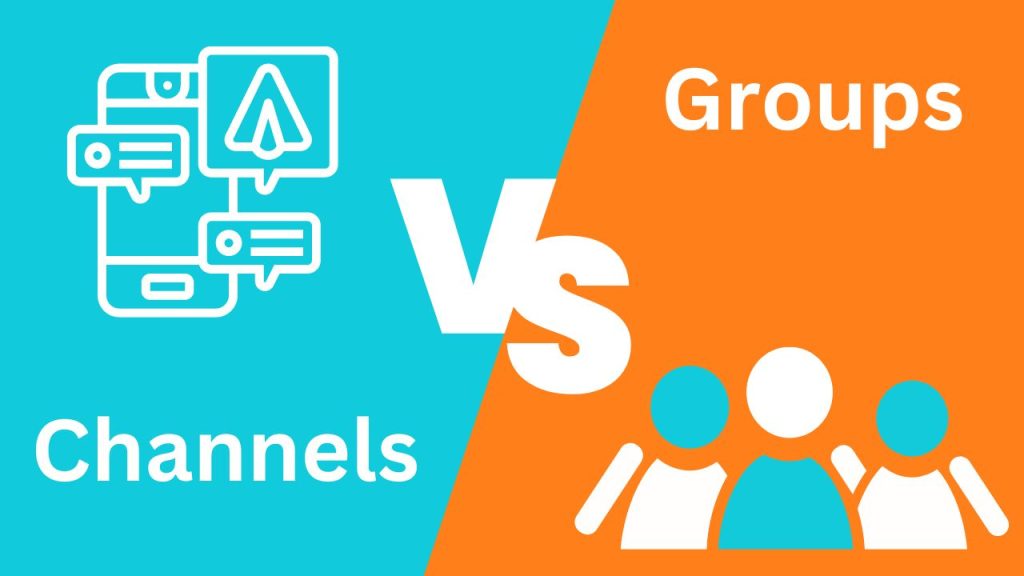When it comes to messaging apps, Telegram and Signal are two of the most popular platforms, each offering distinct features and benefits. While both are renowned for their security and privacy, they also present unique opportunities for marketers.
Telegram, with over 800+ million active users as of 2024, has become a go-to platform for community building, thanks to its large group and channel features, where users can host up to 200,000 members. Its broadcast and automation capabilities allow marketers to reach and engage with massive audiences efficiently.
Conversely, Signal is known for its strong end-to-end encryption and its expanding community of privacy-focused users. As of early 2023, Signal had over 40 million active users globally, gaining momentum due to increasing privacy concerns. Though it may have a smaller audience, its focus on privacy and one-on-one interaction makes it an attractive platform for brands prioritizing secure communication.
In this blog, we’ll dive deeper into Telegram vs Signal, helping you decide which app is best for your marketing strategy, based on their features, audience reach, and marketing potential.
Overview of Telegram vs Signal
What is Telegram?

Telegram is a cloud-based messaging app that has gained immense popularity since its launch in 2013. Known for its flexibility and scalability, Telegram allows users to create groups with up to 200,000 members and broadcast messages to unlimited subscribers via channels. It offers a variety of features, such as bots for automation, media sharing, and public or private groups, making it ideal for community management and large-scale marketing efforts. With over 700 million active users, Telegram’s open API and customizable tools have made it a favored platform for marketers looking to engage with large, global audiences through direct communication.
What is Signal?

Signal is a highly secure messaging app designed with a focus on privacy. Launched in 2014, Signal gained widespread attention due to its commitment to user data protection and strong end-to-end encryption. Unlike Telegram, which stores messages in the cloud, Signal ensures that all communications are encrypted, leaving no trace of conversations on its servers. As of 2023, Signal has over 40 million active users worldwide, largely consisting of privacy-conscious individuals. While Signal may not offer the same community-building tools as Telegram, it is a trusted platform for businesses that need secure, private conversations with clients, making it suitable for industries like finance, healthcare, and legal services.
Is Telegram Better Than Signal?
Whether Telegram is better than Signal depends on your specific needs, especially when it comes to marketing and communication.
When Telegram is Better?
- Marketing and Audience Reach: With over 800 million active users and the ability to host large groups (up to 200,000 members) and broadcast channels with unlimited subscribers, Telegram is ideal for businesses aiming to engage large audiences. Its bots, automation, and file-sharing capabilities make it a robust platform for marketers.
- Features and Customization: Telegram offers a variety of tools, including public channels, scheduled messages, polls, and the ability to share large files (up to 2GB). These features make it more versatile for campaigns, promotions, and community building.
When Signal is Better?
- Privacy and Security: Signal is designed with a primary focus on privacy, offering end-to-end encryption for all messages and calls. It’s perfect for businesses or individuals who prioritize security, such as those in the finance, healthcare, or legal industries. If you need to communicate sensitive information securely, Signal’s encryption and privacy protocols make it a better choice.
- Smaller, Targeted Audiences: While Signal’s 40 million active users may be a smaller audience, they tend to be more privacy-conscious and engaged. It’s ideal for businesses that want to build deep, trusted relationships rather than engage in mass marketing.
Also Read: Telegram vs WhatsApp for Business – Which is Better?
| Feature | Telegram | Signal |
| User Base | 800+ million active users (2024) | 40 million active users (early 2023) |
| Privacy | Cloud-based encryption; Secret Chats for end-to-end encryption | End-to-end encryption by default; No data storage |
| Group Size | Up to 200,000 members in groups | Up to 1,000 members in groups |
| Channels | Unlimited subscribers in channels | No channels feature |
| Bots and Automation | Supports bots for customer service, automation, and interactive features | No bots or automation |
| File Sharing | Up to 2GB per file | Limited file-sharing capabilities |
| Advertising | Sponsored Messages, no traditional ads | Ad-free environment |
| Customization | Customizable public/private channels, branded stickers | No customization for marketing |
| Cost | Free to use, no hidden costs | Free to use, supported by donations |
| Scalability | High scalability with cloud storage | Limited scalability, local storage |
| Best For | Large-scale marketing, community building, rich media sharing | Secure, privacy-focused, one-on-one communication |
| Media Sharing | Supports rich media content, including large files | Limited media-sharing capabilities |
| Search Functionality | Advanced search within groups and channels | Basic search functionality |
| User Verification | Two-step verification for added security | PIN for identity verification |
| Cross-Device Access | Accessible from multiple devices with cloud storage | Limited cross-device access due to local storage |
| Message Reactions | Supports reactions and emoji responses | No reactions or emoji responses |
| Disappearing Messages | Available in Secret Chats | Available for all messages |
| Polls and Surveys | Integrated polls, quizzes, and surveys | No integrated polls or surveys |
Telegram vs Signal: Advertising
Telegram: Advertising and Monetization
- No Traditional Ads: Telegram does not display traditional advertisements in its user interface. Instead, it relies on other revenue models, such as premium features for businesses and paid advertising in channels. This approach keeps the user experience relatively clean compared to platforms that rely heavily on ads.
- Sponsored Messages: Telegram has introduced Sponsored Messages as a way for businesses to reach users. These are messages sent to users who follow large channels, appearing in between channel posts. This allows businesses to engage with a broad audience without intrusive ads. However, these sponsored messages are distinct from conventional ads as they blend with the content rather than disrupting the user experience.
- Advertising Opportunities for Channels: Businesses can leverage Telegram’s channels for direct advertising by partnering with popular channels or creating their own. This approach gives businesses control over the content and audience they engage with.
- Potential for Future Revenue Models: Telegram is known for its innovative approach to monetization. While it currently avoids traditional ads, future updates may introduce new ways to generate revenue that could impact how advertising is handled.
Signal: Ad-Free Experience
- Strict No Ads Policy: Signal is committed to providing an ad-free experience. The platform is designed to prioritize privacy and security over monetization through advertising. This policy aligns with Signal’s focus on ethical practices and user trust.
- Funding through Donations: Signal operates as a non-profit and relies on donations and grants to support its operations. This model ensures that users are not subjected to ads and that the platform remains focused on privacy and user experience.
- Uninterrupted Communication: Signal’s ad-free policy means users experience uninterrupted, secure communication without any commercial interruptions. This enhances user satisfaction and aligns with Signal’s commitment to maintaining a clean, privacy-centric environment.
Recommended: How to Run Telegram Ads? – Step-by-Step Guide
Telegram vs Signal: Security Features
Telegram’s Security Features:
- Cloud-Based Encryption: Telegram offers encryption for messages in transit between the user and its servers. However, it uses cloud-based encryption by default, which means that messages are stored on Telegram’s servers unless users enable secret chats.
- Secret Chats: For end-to-end encryption, users can enable Secret Chats, which ensures messages are visible only to the sender and recipient, with no data stored on Telegram’s servers. These chats are device-specific and cannot be accessed from multiple devices.
- Self-Destructing Messages: Telegram’s Secret Chats also offer a self-destruct feature that allows users to set a timer for messages to be deleted automatically after they are viewed.
- Two-Step Verification: Telegram offers an extra layer of security through two-step verification, which requires a password along with a code to access the account.
While Telegram provides encryption options, its default settings don’t offer end-to-end encryption across all chats, which can leave some messages vulnerable if not in Secret Chats.
Signal’s Security Features:
- End-to-End Encryption by Default: Signal is built with end-to-end encryption for all messages, calls, and media, ensuring that only the sender and recipient can access the content. Signal uses the Signal Protocol, considered one of the most secure encryption technologies available.
- No Data Storage: Unlike Telegram, Signal does not store any messages or user data on its servers. The app keeps minimal metadata, ensuring that no logs of communication history or content are available for third-party access.
- Disappearing Messages: Signal offers a disappearing messages feature, allowing users to set a timer for messages to auto-delete after a specific period, providing further privacy control.
- Screen Security: Signal includes a screen security feature that prevents screenshots of conversations, protecting sensitive information from being captured and shared.
- PIN for Identity Verification: Signal uses a PIN to secure account access and ensure that users can recover their profiles even if they change devices. This provides an additional level of security.
Telegram vs Signal: Features for Business Communication
Telegram’s Features for Business Communication:
- Large Groups and Channels: Telegram allows businesses to create groups with up to 200,000 members and channels for broadcasting messages to an unlimited audience. This makes it ideal for community building, promotions, and disseminating information to large audiences.
- Bots and Automation: Telegram supports bots for automating tasks like customer service, scheduling posts, conducting surveys, or sending reminders. This feature is highly beneficial for businesses that want to streamline their communications and provide real-time responses.
- File Sharing: Telegram allows users to share large files up to 2GB, making it an excellent platform for sharing media-rich content, presentations, and business documents.
- Customizable User Experience: Businesses can create customized public or private channels with personalized branding and integrate third-party tools for automation. Telegram’s open API also makes it easier for businesses to build custom solutions tailored to their needs.
- Polls and Surveys: For businesses seeking feedback or engagement, Telegram offers features like polls, quizzes, and surveys, making it easier to gather insights from large audiences.
Signal’s Features for Business Communication:
- End-to-end Encrypted Communication: Signal is built with end-to-end encryption by default for all messages and calls, making it an ideal choice for businesses handling sensitive client data or confidential communication.
- One-on-One Secure Conversations: Signal is better suited for one-on-one or small group conversations rather than large-scale broadcasting. This makes it ideal for industries such as healthcare, legal, and finance, where privacy is a priority, and communication tends to be more personal and confidential.
- No Bots or Automation: Unlike Telegram, Signal does not support bots or automation, limiting its use to businesses that rely on automated customer service, scheduling, or bulk messaging.
- Disappearing Messages: For businesses that handle sensitive information, Signal offers disappearing messages to ensure that communications are automatically deleted after a set time. This feature is essential for protecting confidential discussions.
Telegram vs Signal: Cost and Scalability
Telegram: Cost-Effective and Scalable
- Cost:
- Free to Use: Telegram is entirely free for users, with no hidden costs or premium features that require payment. This makes it an attractive option for individuals and businesses alike, especially those looking to minimize expenses.
- No Advertisements: Telegram does not display ads, which helps maintain a clean user experience without the need for monetization through advertising.
- Scalability:
- Large Groups and Channels: Telegram supports large groups with up to 200,000 members and channels with unlimited subscribers. This high capacity makes it suitable for businesses and communities aiming for substantial reach and engagement.
- Cloud-Based Storage: Telegram uses cloud storage to manage data, allowing users to access their chats and media from multiple devices without worrying about local storage limits. This also means that as your user base grows, Telegram’s infrastructure can handle the increased load without additional costs.
Signal: Cost-Effective but Limited Scalability
- Cost:
- Free to Use: Signal is also free to use, with no subscription fees or in-app purchases. Its model is supported by donations, which helps keep it accessible for all users.
- Non-Profit Model: Unlike Telegram, Signal operates as a non-profit organization. This model focuses on sustainability and privacy rather than generating revenue, which may align better with organizations that prioritize ethical considerations.
- Scalability:
- Group Size Limitations: Signal supports groups with up to 1,000 members, which is significantly smaller compared to Telegram. While this is sufficient for smaller communities and teams, it may be a limitation for larger organizations looking to scale their communication channels.
- Local Storage: Signal’s data is stored locally on devices rather than in the cloud. This can lead to limitations in accessing large amounts of data across multiple devices and may impact scalability as the user base grows.
Advertise on Telegram With the Best Telegram Ads Agency
Conclusion
Telegram stands out as the superior choice for marketing. Its extensive range of features, including customizable channels, large group capacities, and sponsored messages, offers unparalleled opportunities for businesses to reach and engage with a vast audience. Telegram allows for advanced customization, such as branded stickers and custom themes, which can enhance your marketing efforts and build a unique brand presence.
In contrast, Signal focuses on privacy and a clean, ad-free environment, which may limit its suitability for extensive marketing efforts. While Signal is excellent for maintaining secure and private communication, it lacks the scalability and advertising features that Telegram provides.
Therefore, if your marketing strategy involves extensive reach, high engagement, and innovative advertising options, Telegram is the clear choice. Its versatile features and broad audience capabilities make it the best platform for maximizing marketing impact and achieving your brand’s goals.
FAQs:
Yes, Telegram is great for business due to its customizable channels, large group capacities, and advertising options, making it effective for marketing, customer engagement, and community building.
Yes, Signal has groups, but with a limit of up to 1,000 members, which is smaller compared to Telegram’s 200,000-member capacity.


